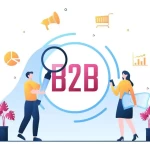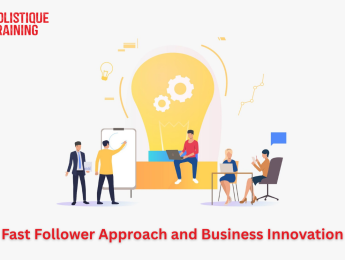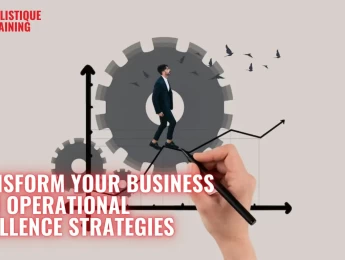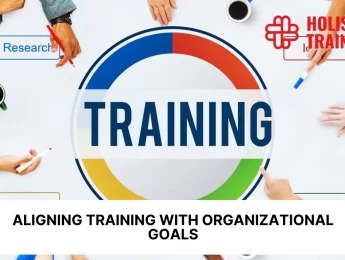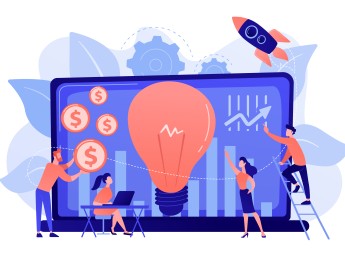- Table of Contents
- Introduction
- What Is B2B Marketing?
- B2B vs. B2C Marketing
- 1. Target Audience and Decision-Making Dynamics
- 2. Relationship Duration and Transaction Complexity
- 3. Purchase Motivations and Marketing Appeals
- 4. Marketing Strategies
- Navigating the B2B Sales Funnel
- 1. Awareness
- 2. Interest
- 3. Consideration
- 4. Decision
- 5. Retention
- B2B Marketing Strategies
- 1. Define Clear Buyer Personas
- 2. Content Marketing
- 3. Social Media Marketing
- 4. Thought Leadership
- 5. Account-Based Marketing (ABM)
- 6. Relationship Building
- 7. Data-Driven Marketing
- Emerging Trends in B2B Marketing
- 1. AI-Powered Marketing
- 2. Interactive Content
- 3. Sustainability and Social Responsibility
- 4. Account-Based Marketing (ABM) 2.0
- 5. Virtual and Augmented Reality (VR/AR)
- Conclusion
- Ready to Master B2B Marketing?
Introduction
Effective marketing is essential for any organisation looking to thrive in today's competitive business landscape. However, the strategies employed in business-to-business (B2B) marketing differ significantly from those in business-to-consumer (B2C) marketing. Understanding the nuances of B2B marketing is crucial for businesses seeking to build strong relationships, generate leads, and drive growth. In this blog post, we will delve into the fundamentals of B2B marketing, highlighting its key elements, comparing it to B2C marketing, and exploring effective strategies for success.
What Is B2B Marketing?
B2B marketing refers to the process of promoting products or services from one business to another. Unlike B2C marketing, which focuses on capturing the attention and interest of individual consumers, B2B marketing targets decision-makers within other companies. B2B marketing encompasses a wide range of activities, including lead generation, brand positioning, relationship building, and sales support.
B2B vs. B2C Marketing
While both B2B and B2C marketing share the goal of driving sales, there are distinct differences between the two approaches. Understanding these differences is crucial for effectively tailoring marketing strategies to the target audience.
1. Target Audience and Decision-Making Dynamics
B2B Marketing:
In B2B marketing, the audience comprises professionals, decision-makers, and stakeholders within other businesses. These individuals operate within complex organisational structures, often necessitating approval from multiple stakeholders before a purchase is made. Consequently, B2B marketing strategies must be meticulously crafted to address these decision-makers specific concerns and needs. Understanding the intricate decision-making dynamics is essential, as rationality, ROI calculations, and long-term business goals guide the buying process.
B2C Marketing:
B2C marketing, on the other hand, is all about appealing to individual consumers. The focus here is on creating emotional connections, triggering impulse buying, and addressing personal desires and preferences. B2C marketers tap into the psychology of consumers, leveraging emotions and lifestyle aspirations to drive sales. Unlike the structured B2B environment, B2C transactions are usually swift, with fewer decision-making layers, making the purchasing process more immediate and impulsive.
2. Relationship Duration and Transaction Complexity
B2B Marketing:
B2B transactions often involve long-term relationships, emphasising trust-building and providing ongoing value. The sales cycles can be protracted, spanning weeks or even months. Businesses engage in repeat purchases or establish enduring contracts, necessitating continuous nurturing of the client relationship. B2B marketers invest in personalised communication, exceptional customer service, and consistent reliability to foster loyalty and ensure customer retention.
B2C Marketing:
B2C transactions, in contrast, are typically short-lived. The interactions are often transactional, with fewer touchpoints. While brand loyalty is vital in B2C, the decision-making process is generally quicker. B2C marketers focus on creating immediate impact and customer satisfaction during individual transactions, aiming for high sales volumes within a shorter time frame.
3. Purchase Motivations and Marketing Appeals
B2B Marketing:
B2B purchases are primarily driven by rational decision-making. Buyers evaluate products or services based on factors like ROI, cost-effectiveness, efficiency, and long-term benefits to the business. Marketing messages revolve around demonstrating how the offering can address specific business challenges, optimise processes, and contribute to the client’s bottom line. B2B marketing emphasises data-driven decision-making, providing detailed information and evidence to support the purchasing choice.
B2C Marketing:
B2C purchases, on the other hand, are heavily influenced by emotional factors. Personal preferences, desires, and lifestyle choices guide consumers. Marketing campaigns in the B2C realm tap into these emotions, creating advertisements that resonate with individuals' aspirations, fears, or desires for self-improvement. The focus is on eliciting emotional responses and creating memorable brand experiences.
4. Marketing Strategies
B2B Marketing:
B2B marketing strategies involve detailed market research, understanding buyer personas, and creating content addressing businesses' pain points. Content marketing, such as whitepapers, case studies, webinars, and industry reports, plays a significant role. Additionally, B2B marketers engage in thought leadership activities, positioning their businesses as industry experts and trusted advisors. Account-based marketing (ABM), which we will discuss in a minute, is a prevalent strategy that tailors campaigns for specific high-value accounts.
B2C Marketing:
B2C marketing relies heavily on mass advertising, social media engagement, and influencer marketing to capture the attention of individual consumers. Emotional storytelling is a prevalent theme in B2C campaigns, aiming to create a deep connection between the brand and the consumer. E-commerce platforms, mobile apps, and user-friendly interfaces are also crucial, ensuring seamless and convenient shopping experiences for consumers.
In essence, while both B2B and B2C marketing share the overarching goal of driving sales, the nuances in their approach are striking. B2B marketing is a strategic, relationship-driven process that emphasises trust, reliability, and long-term value. In contrast, B2C marketing is fast-paced, emotional, and transactional, aiming to evoke immediate responses and create memorable brand experiences. Understanding these differences is not just a matter of academic distinction; it is the key to crafting marketing strategies that resonate profoundly with the intended audience, fostering enduring connections and thriving sales.

Navigating the B2B Sales Funnel
In the intricate world of B2B marketing, understanding the journey that prospects take from the first point of contact to becoming loyal clients is paramount. The B2B sales funnel is a dynamic process that involves multiple stages, each demanding a unique approach and tailored strategies. Here, we explore the nuances of navigating the B2B sales funnel, guiding prospects through awareness, interest, consideration, decision, and ultimately, advocacy.
1. Awareness
The journey begins with creating awareness. Prospective clients need to know your business exists and understand the value you offer. In the digital age, this often starts online. Content marketing is pivotal here, from blog posts and infographics to social media content. Engaging and informative content captures attention and establishes your business as a credible source of information within your industry. Search engine optimisation (SEO) ensures your content is discoverable, increasing your visibility among potential clients. Awareness campaigns, both online and offline, create the initial ripples that attract prospects to your business.
2. Interest
Once awareness is established, the goal is to pique interest. Prospects are now curious about your offerings and are actively seeking more information. In this phase, in-depth content such as webinars, case studies, and eBooks becomes invaluable. These resources offer detailed insights into your products or services, addressing specific pain points of your audience. The content should be tailored to showcase not just what you offer, but how your offerings solve real problems. Interactive content, such as quizzes or online demonstrations, encourages prospects to explore further and consider your solutions seriously.
3. Consideration
In the consideration stage, prospects are evaluating your offerings in detail. They are comparing your solutions with those of your competitors, analysing features, pricing, and overall value. To cater to their needs, provide comprehensive product guides, comparison charts, and expert consultations. Personalised content addressing their specific concerns and illustrating your unique selling points is crucial. Case studies showcasing successful implementations with similar businesses can instil confidence. Webinars and live demos give prospects a firsthand experience, allowing them to envision how your offerings align with their requirements. Thoughtful, targeted communication at this stage can significantly influence the decision-making process.
4. Decision
The decision stage is the tipping point. Prospects are on the verge of becoming clients. Now is the time for personalised attention and tailored offers. Provide custom quotes, offer trials or product demonstrations specific to their needs, and be responsive to queries. Personalised email sequences, crafted to address their concerns and highlight the benefits they’ll gain, are highly effective. Case studies featuring businesses similar to theirs, who have experienced significant improvements after choosing your services, provide real-world validation. Assurance of exceptional customer service and support post-purchase is vital at this stage. A seamless, hassle-free purchasing experience significantly influences choosing your business over competitors.
5. Retention
Once the sale is made, the relationship doesn’t end; it transforms. Customer retention ensures satisfaction, provides ongoing support, and nurtures the client relationship. Regular follow-ups, customer satisfaction surveys, and feedback mechanisms demonstrate your commitment to their success. Tailored email newsletters offering tips, updates, and exclusive offers keep your business on their radar. Additionally, it provides exceptional customer service, promptly addressing any issues or concerns. Building a community around your brand, perhaps through exclusive forums or social media groups, encourages clients to share experiences and learn from each other, fostering a sense of belonging and loyalty. Delighted clients are not just repeat buyers; they become advocates, referring your services to others and contributing to your business’s growth.
Mastering the B2B sales funnel is not just a process; it's an art form. It demands an in-depth understanding of your audience, meticulous planning, and a commitment to delivering exceptional value at every stage. Your business secures sales and fosters enduring relationships by guiding prospects from awareness to advocacy with precision and care. In the competitive landscape of B2B marketing, businesses that navigate the sales funnel with finesse, offering personalised experiences and unwavering support, are the ones that thrive, building a loyal customer base and ensuring sustained success in the long run.
B2B Marketing Strategies
To effectively navigate the B2B marketing landscape, businesses must employ strategies tailored to their unique audience. Here are some key strategies that can help unlock success:
1. Define Clear Buyer Personas
Understanding the intricacies of your target audience is the cornerstone of any effective B2B marketing strategy. Creating detailed buyer personas goes beyond basic demographics; it delves into the roles, pain points, goals, and motivations of decision-makers within other businesses. This in-depth understanding informs every aspect of your marketing efforts, from crafting personalised messaging to tailoring content that speaks directly to the needs of your audience. By empathetically putting yourself in your clients' shoes, you can align your offerings with their requirements, building trust and credibility.
2. Content Marketing
Content, when crafted masterfully, has the power to inform, engage, and persuade. In B2B marketing, content isn't merely a vehicle for information; it's a tool for building relationships and establishing authority. Educational blog posts, insightful whitepapers, compelling case studies, and in-depth industry reports are invaluable assets. These pieces of content not only address your audience's pain points but also position your business as a thought leader and a reliable source of information. By offering solutions and demonstrating your expertise, you not only attract leads but nurture them throughout their decision-making journey.
3. Social Media Marketing
Social media platforms offer valuable opportunities for B2B marketing. Utilise platforms like LinkedIn, Twitter, and Facebook to connect with industry professionals, share relevant content, engage in discussions, and showcase thought leadership. According to the findings of Deloitte's 2021 CMO survey, B2B product brands are projected to allocate 14.7% of their marketing budget towards social media marketing through 2023. Moreover, this percentage is expected to witness a significant 10-point increase over the next five years. These statistics highlight the growing recognition of the impact and potential of social media in the B2B marketing landscape.
4. Thought Leadership
Establishing your business as a thought leader is a potent strategy in the realm of B2B marketing. By sharing expert insights, industry trends, and innovative ideas, you position your brand as an authority in your field. Thought leadership extends beyond written content; it encompasses webinars, podcasts, speaking engagements, and industry conferences. These platforms not only showcase your expertise but also provide opportunities for networking and collaboration. Thought leadership not only attracts clients but also builds credibility, trust, and brand loyalty, ensuring that your business is top-of-mind when clients are seeking solutions in your domain.
5. Account-Based Marketing (ABM)
Account-Based Marketing (ABM) is a laser-focused strategy tailoring marketing efforts for high-value accounts. Unlike broader marketing approaches, ABM is highly personalised, addressing each target account's unique needs and challenges. This strategy leverages data, analytics, and customised messaging to nurture relationships, drive engagement, and increase the likelihood of conversions. ABM recognises that not all clients are the same; each account has distinct requirements, and tailoring your approach accordingly enhances your chances of success. By aligning your offerings precisely with the needs of key accounts, ABM ensures that your resources are optimised for maximum impact.
6. Relationship Building
In the realm of B2B marketing, relationships are not just transactional; they are the lifeblood of sustainable success. Building strong, enduring relationships involves personalised communication, timely follow-ups, and exceptional customer service. Email campaigns tailored to individual leads, follow-ups that address specific queries, and networking events facilitating face-to-face interactions are integral to relationship building. Moreover, emphasising customer success is crucial. Providing ongoing support, being responsive to client needs, and going the extra mile to ensure customer satisfaction are strategies that foster loyalty and encourage repeat business. Additionally, seeking opportunities for partnerships and collaborations with complementary businesses can expand your reach, enhance your offerings, and tap into shared audiences.
7. Data-Driven Marketing
In the data-driven era, information is power. B2B marketers leverage data and analytics to gain actionable insights, make informed decisions, and optimise their strategies. Key Performance Indicators (KPIs) such as conversion rates, customer acquisition costs, customer lifetime value, and engagement metrics are meticulously tracked and analysed. These metrics provide valuable feedback, enabling marketers to identify trends, refine their campaigns, and allocate resources effectively. Businesses can precisely tailor their strategies by basing decisions on data, ensuring that their efforts are targeted and results-oriented.
In summary, B2B marketing is a multifaceted endeavour that demands creativity, strategic thinking, and a deep understanding of the target audience. By embracing these comprehensive strategies, businesses can not only navigate the complexities of the B2B landscape but also thrive, building lasting relationships, fostering brand loyalty, and driving sustainable growth. As the digital realm continues to evolve, staying abreast of emerging technologies and trends ensures that your B2B marketing strategies remain innovative and effective, positioning your business at the forefront of your industry.
Emerging Trends in B2B Marketing
As the digital realm continues to evolve at an unprecedented pace, the landscape of business-to-business (B2B) marketing is undergoing transformative shifts. Adapting to these emerging trends is not just a strategic choice; it's imperative for businesses aiming to stay ahead in the competitive arena. Here, we explore the cutting-edge trends shaping the future of B2B marketing, from the integration of artificial intelligence to the growing emphasis on sustainability and social responsibility.
1. AI-Powered Marketing
Artificial Intelligence (AI) is the driving force behind the next wave of B2B marketing innovation. Machine learning algorithms and predictive analytics are being harnessed to analyse vast datasets, enabling businesses to gain profound insights into customer behaviour, preferences, and trends. AI-powered chatbots are revolutionising customer interactions, providing instant responses to inquiries and enhancing user experience. Moreover, AI facilitates hyper-personalisation by analysing individual customer data, enabling businesses to tailor marketing messages and offers with unparalleled precision. Through AI, B2B marketers can automate mundane tasks, optimise marketing campaigns, and deliver highly personalised, data-driven experiences to clients, ultimately driving engagement and conversions.
Technology | Description |
Artificial Intelligence | Enhances data analysis and customer insights |
Marketing Automation | Automates repetitive tasks, nurtures leads |
Big Data Analytics | Analyses vast datasets for actionable insights |
Chatbots | Provides instant customer support 24/7 |
Blockchain Technology | Ensures secure and transparent transactions |
Table 1: The role of technology in B2B marketing
2. Interactive Content
Interactive content is reshaping the way B2B marketers engage their audience. Traditional static content gives way to dynamic, interactive experiences such as quizzes, surveys, videos, and calculators. These formats capture attention and actively involve the audience, encouraging participation and feedback. Interactive content educates prospects and provides valuable data and insights into customer preferences and interests. B2B marketers leverage these formats for lead generation, gathering feedback, market research, and creating memorable brand experiences. Interactive content is not just a trend; it’s a powerful tool that fosters engagement, strengthens relationships, and enhances brand visibility.
3. Sustainability and Social Responsibility
Sustainability and social responsibility have transitioned from buzzwords to integral components of B2B marketing strategies. B2B buyers, like their B2C counterparts, are increasingly conscious of environmental impact, ethical sourcing, and social initiatives. Companies that demonstrate eco-friendly practices, ethical supply chains, and community engagement initiatives are gaining a competitive edge. B2B marketers are integrating these values into their branding and communication strategies. Transparent communication about sustainable practices and social impact enhances a company’s reputation and resonates deeply with environmentally conscious buyers. Businesses are not just focusing on profit margins; they align their missions with social and environmental causes, creating a positive impact and fostering trust among clients and partners alike.
4. Account-Based Marketing (ABM) 2.0
Account-Based Marketing (ABM) is evolving into a more sophisticated and data-driven approach. ABM 2.0 leverages advanced analytics, predictive modelling, and artificial intelligence to identify high-value accounts precisely. Machine learning algorithms analyse historical data to predict which accounts are most likely to convert and engage. This data-driven approach allows marketers to tailor highly personalised campaigns, optimising resources and ensuring maximum impact. ABM 2.0 is not just about targeting specific accounts; it's about predictive targeting, identifying accounts before they even enter the sales funnel. By reaching out to prospects at the right moment with the right message, businesses can significantly increase their chances of conversion, making ABM 2.0 an invaluable strategy in the B2B marketing arsenal.
5. Virtual and Augmented Reality (VR/AR)
Virtual and Augmented Reality technologies are no longer limited to the realm of gaming; they are transforming B2B marketing experiences. VR and AR applications are being used to create immersive product demonstrations, virtual tours, and interactive training modules. VR allows potential clients to explore properties, products, or services in a lifelike, three-dimensional environment for industries like real estate, manufacturing, and healthcare. AR applications enable businesses to overlay digital information on real-world objects, providing interactive and engaging experiences. These technologies captivate the audience and facilitate better understanding and visualisation of complex products or services. As VR and AR technologies become more accessible, their integration into B2B marketing strategies is becoming increasingly prevalent, revolutionising client engagement and brand experiences.
In short, embracing these emerging trends isn’t just about staying relevant; it’s about redefining the boundaries of B2B marketing. Businesses that harness the power of AI, create immersive interactive content, champion sustainability, refine their ABM strategies, and explore the potential of VR/AR are positioning themselves as innovators and industry leaders. As these trends continue to evolve, adaptability and innovation will be the cornerstones of B2B marketing success, ensuring that businesses not only navigate the future landscape but also thrive in the ever-changing digital era.
Conclusion
In the dynamic realm of business-to-business (B2B) marketing, mastering the intricacies of client relationships, embracing cutting-edge strategies, and adapting to emerging trends are not mere choices; they are the keys to unparalleled success. Understanding the nuances of B2B marketing, from the intricate art of relationship building to the integration of artificial intelligence, positions businesses at the forefront of their industries. By recognising the distinctions between B2B and B2C marketing, and by aligning strategies with the evolving needs of the audience, businesses can thrive in the competitive landscape.
As the digital era unfolds, staying ahead of the curve is not just an advantage; it's a necessity. Businesses that invest in continuous learning, exploring innovative techniques, and refining their approaches are the ones that dominate their markets. The journey of mastering B2B marketing isn't just about skill acquisition; it's about transformation. It's about evolving from traditional practices to becoming trailblazers, redefining industry standards and driving unprecedented growth.
Ready to Master B2B Marketing?
Unlock the secrets to B2B marketing excellence with our comprehensive course, Mastering Business to Business Marketing. Dive deep into the strategies, techniques, and emerging trends that define the future of B2B marketing. Learn from industry experts, explore real-world case studies, and gain hands-on experience in crafting compelling B2B campaigns. Elevate your skills, enhance your business acumen, and propel your career to new heights. Join us on this transformative journey and chart your course to unparalleled success in the world of B2B marketing. Enroll now and redefine your future in the competitive business landscape!




